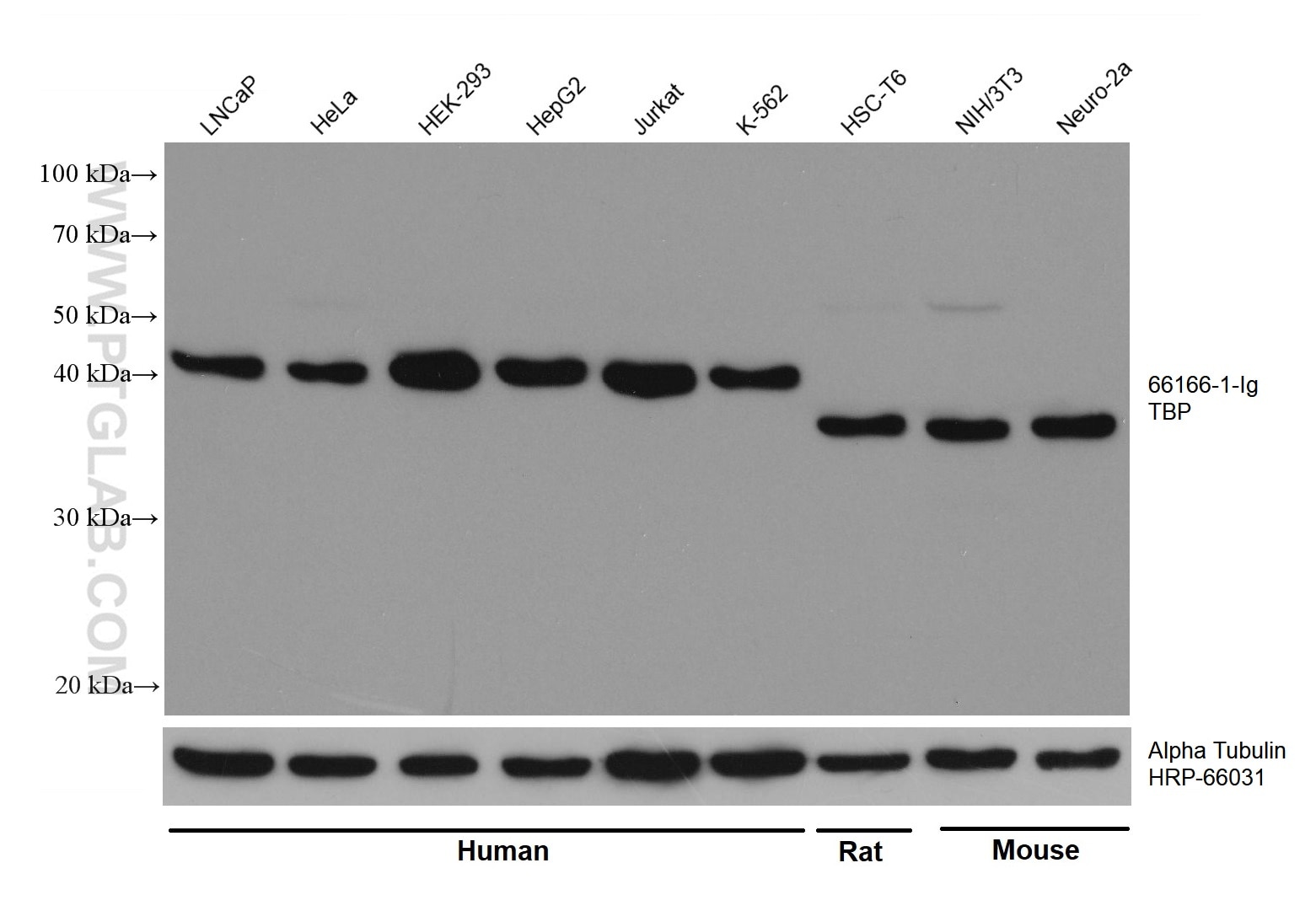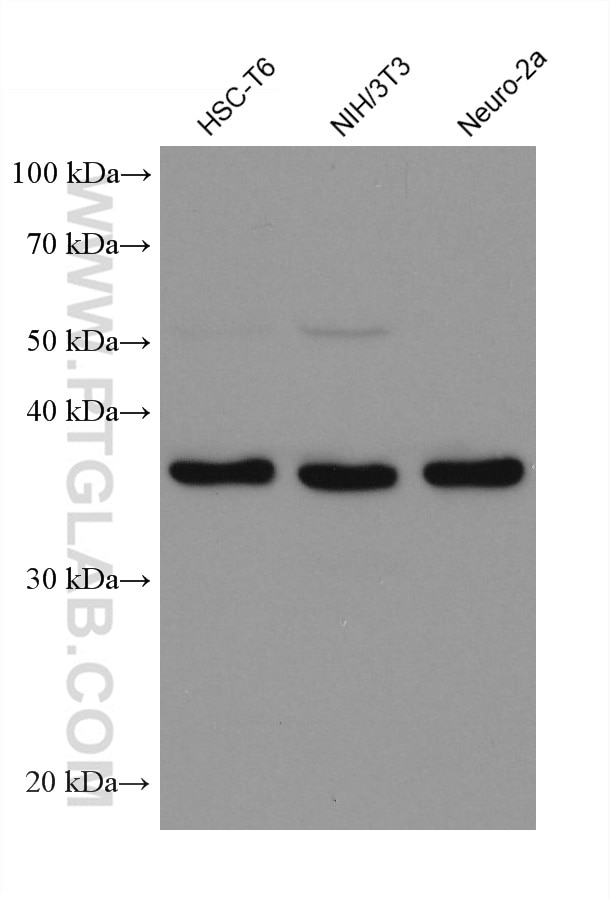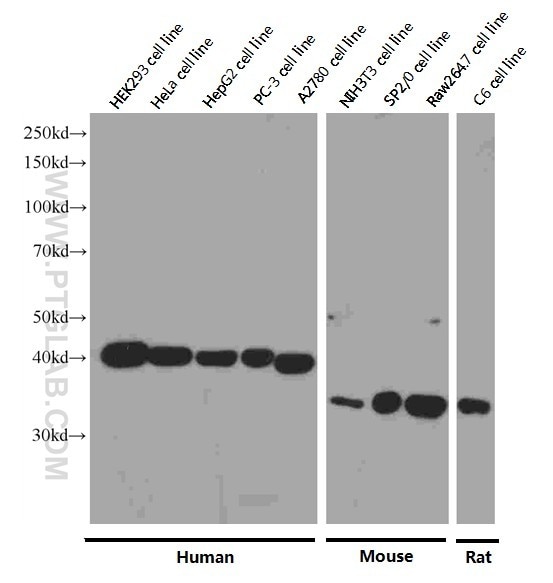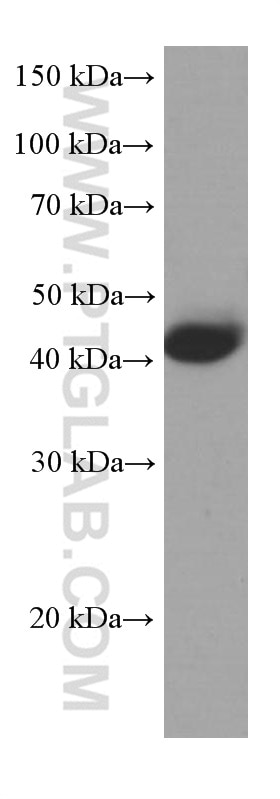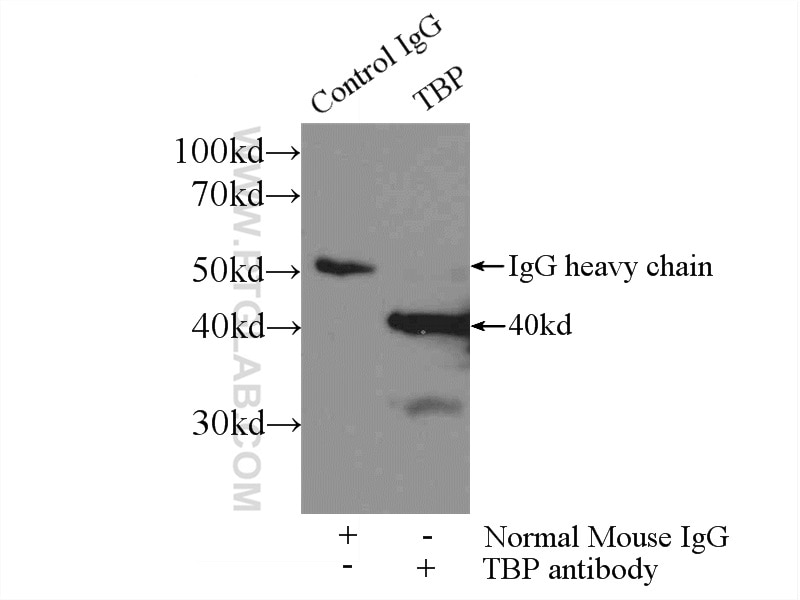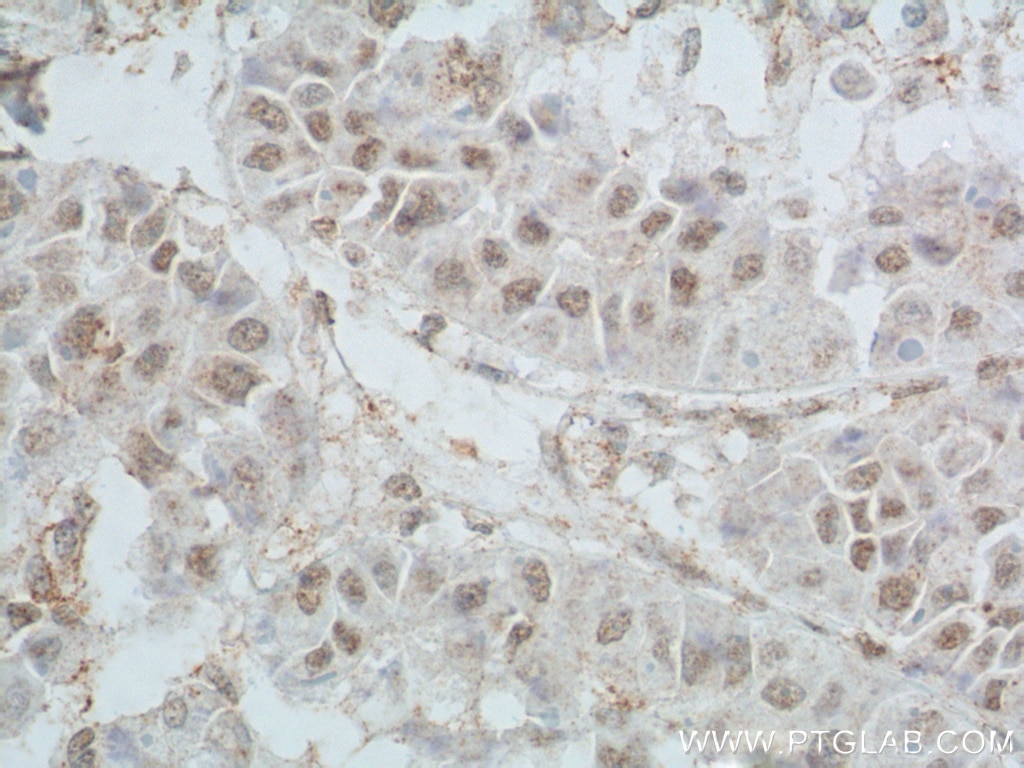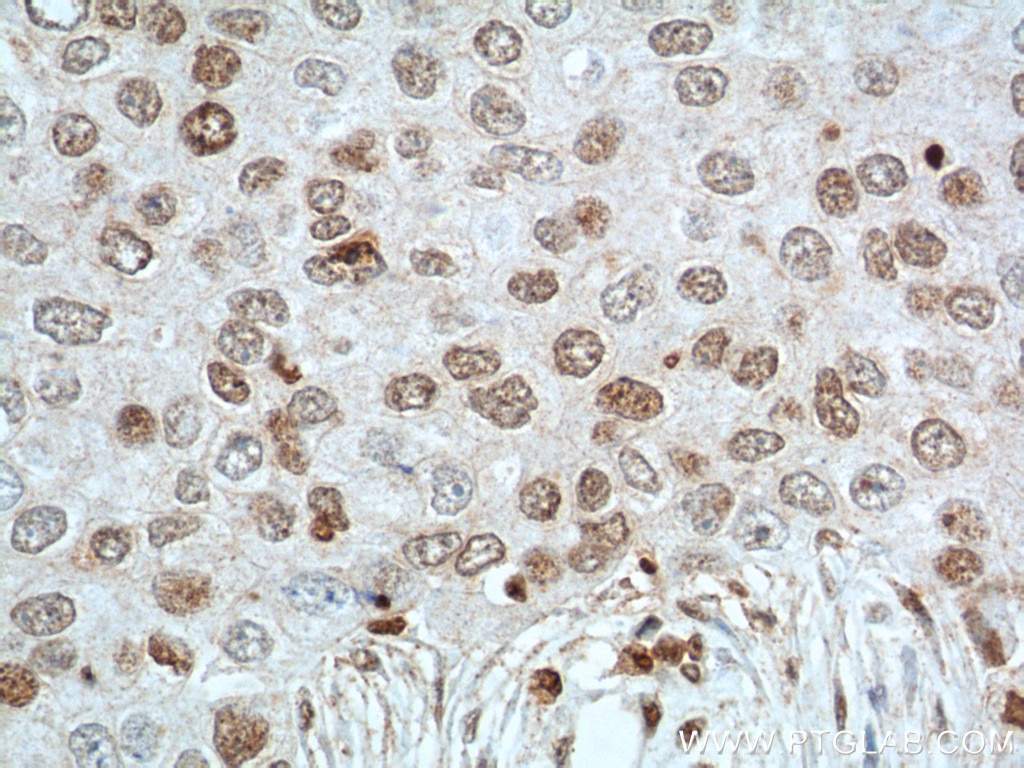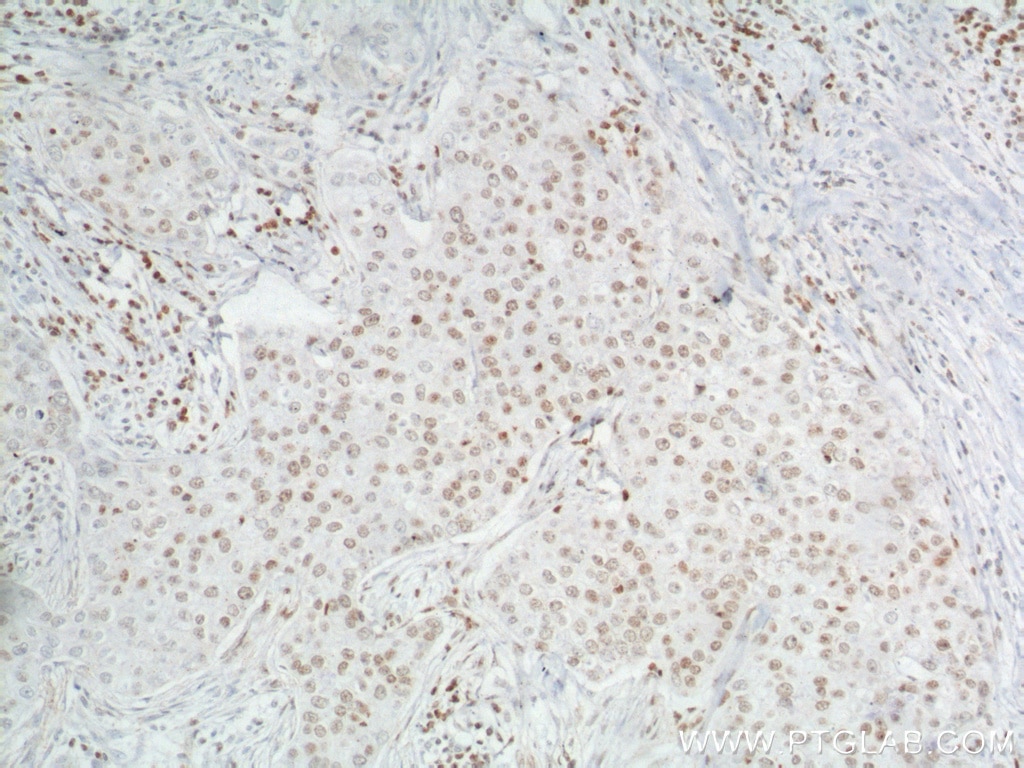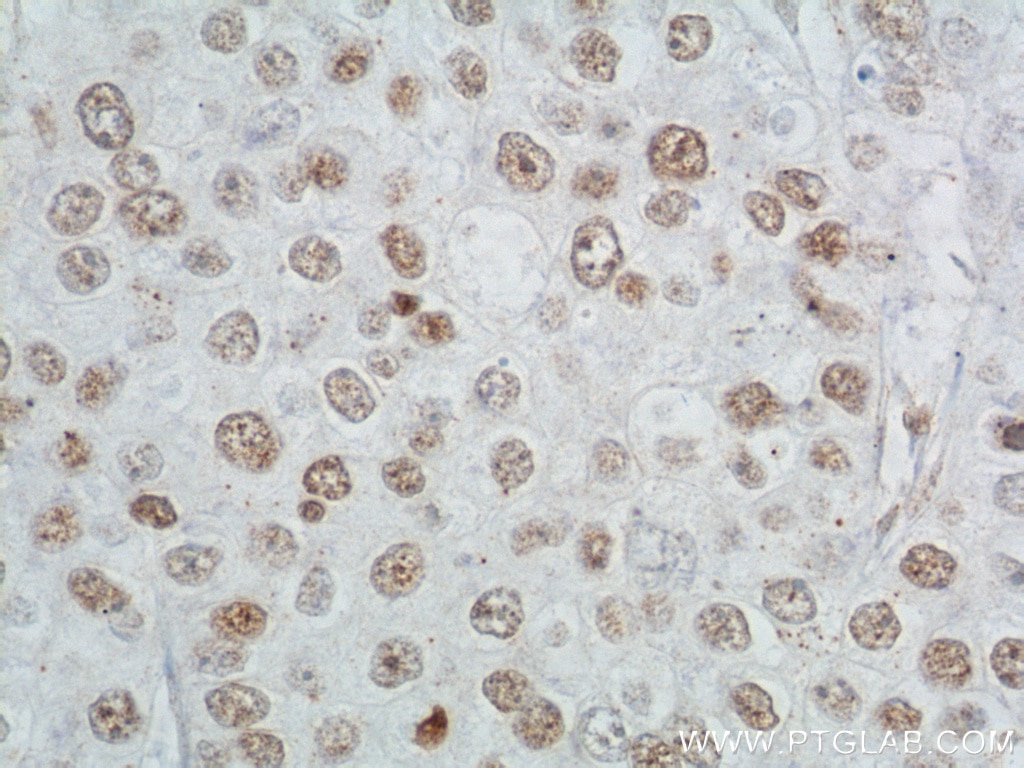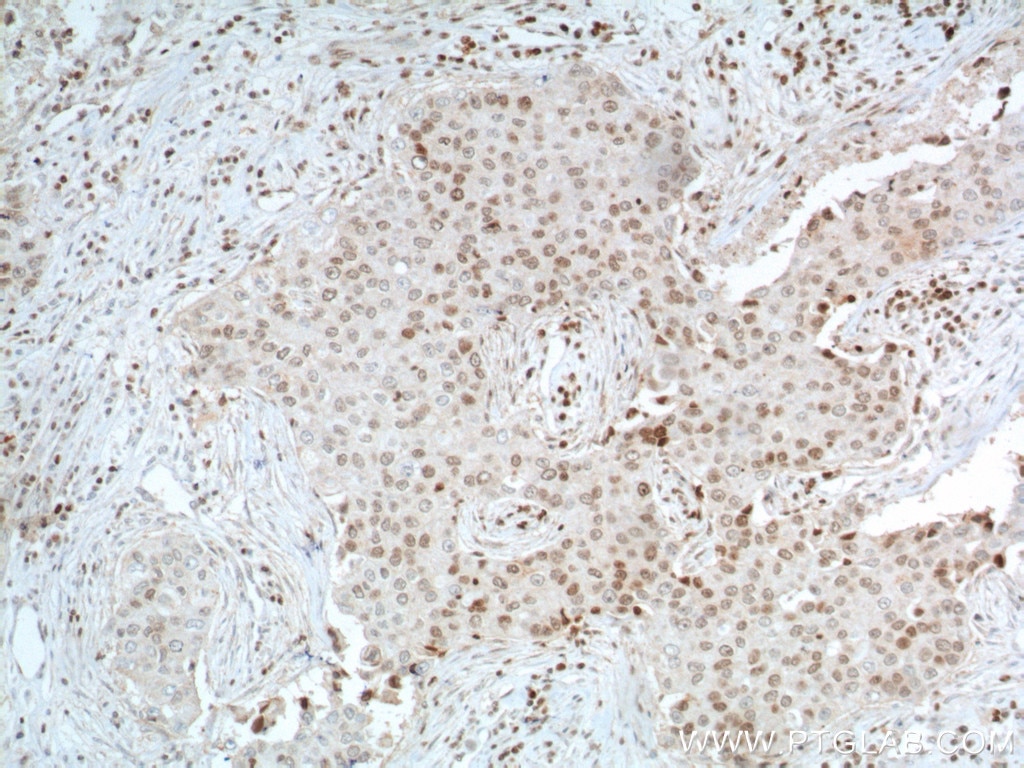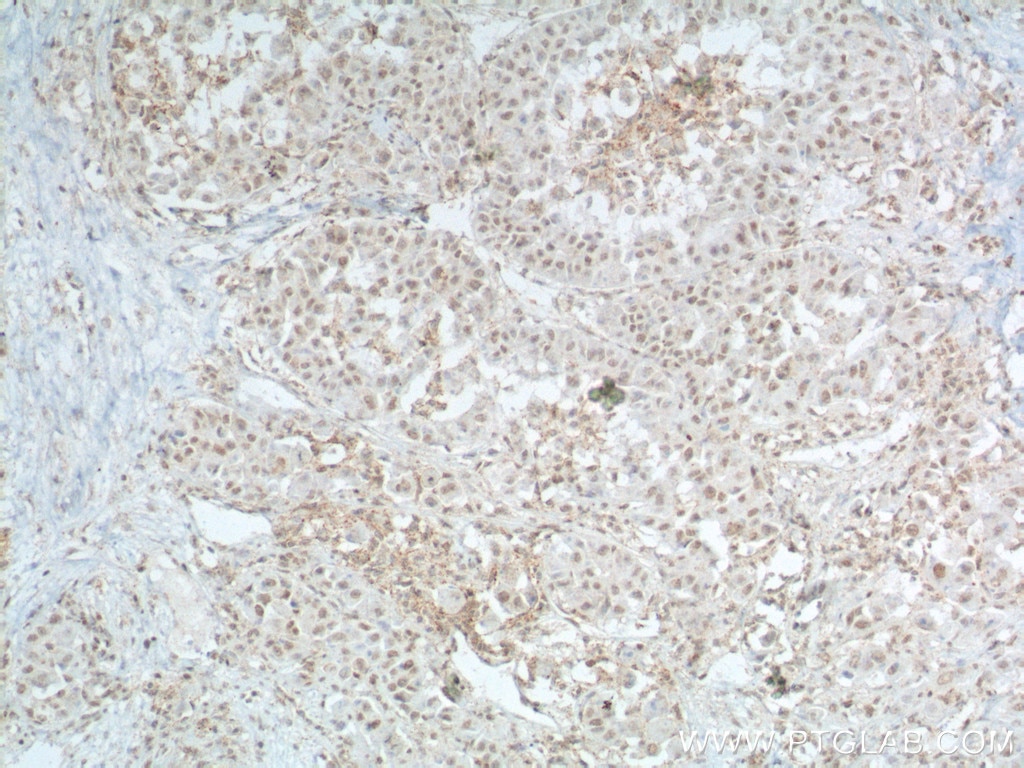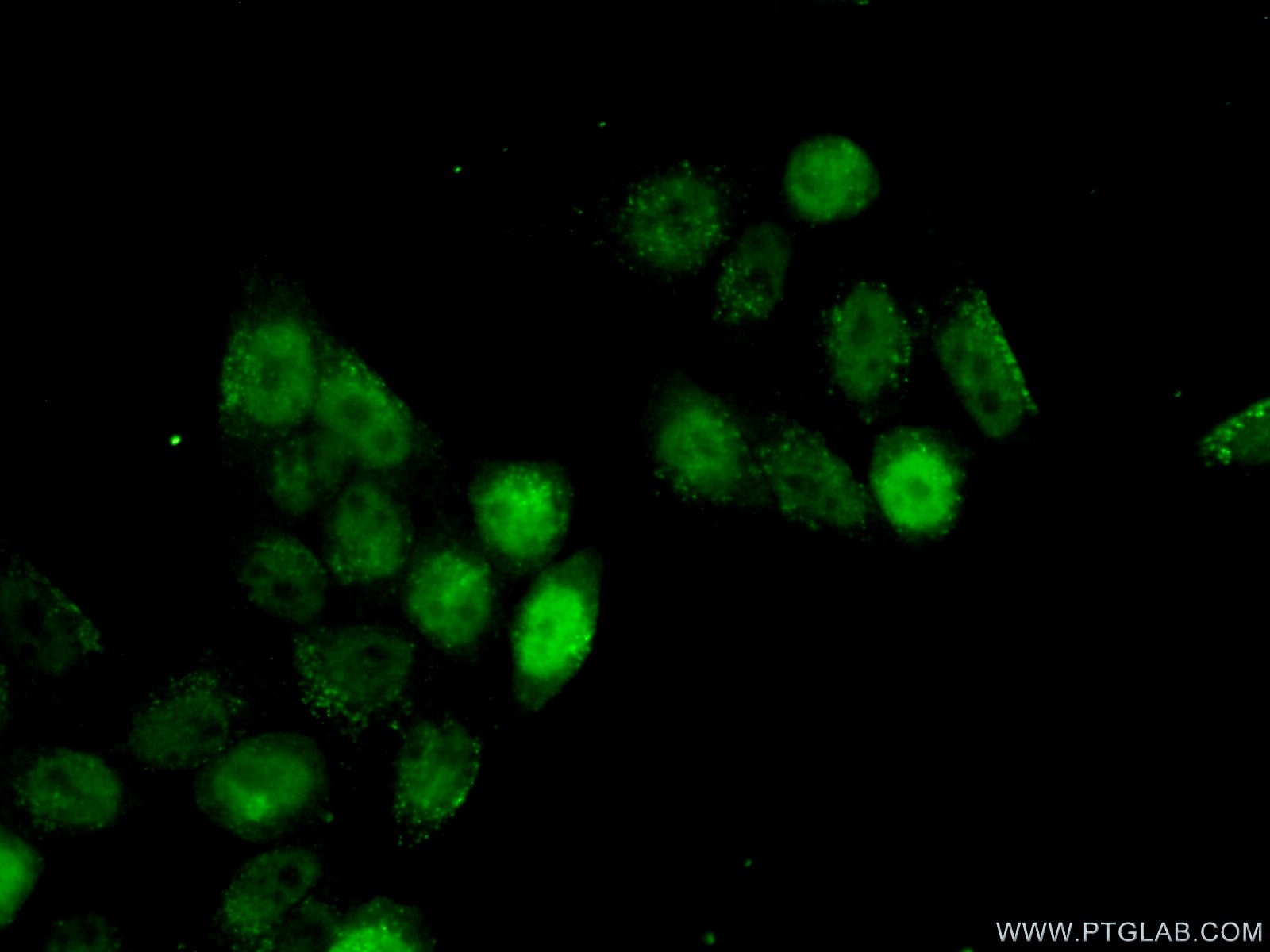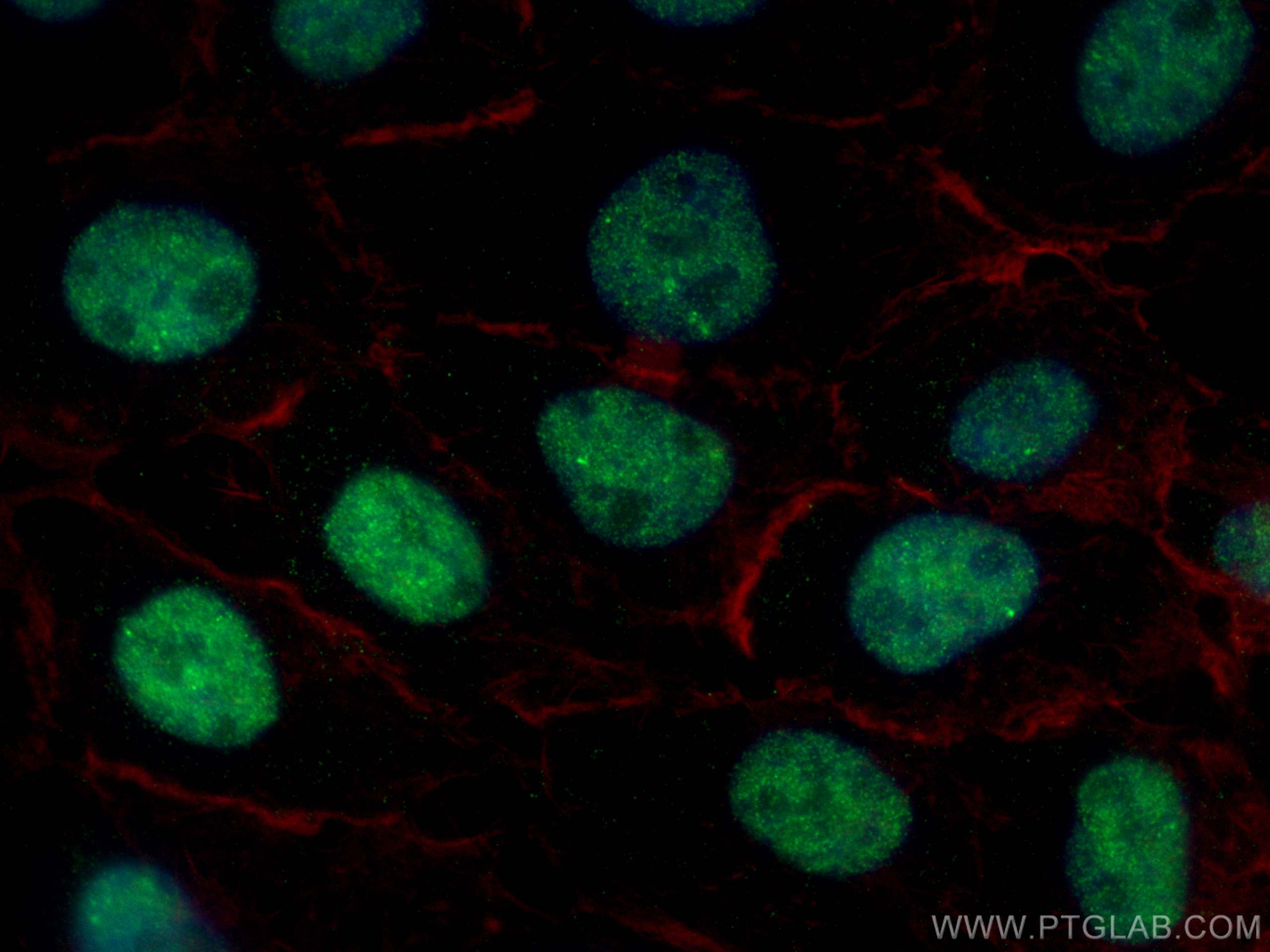Product Information
66166-1-PBS targets TBP in WB, IHC, IF/ICC, IP, Indirect ELISA applications and shows reactivity with human, mouse, rat, pig samples.
| Tested Reactivity | human, mouse, rat, pig |
| Host / Isotype | Mouse / IgG2a |
| Class | Monoclonal |
| Type | Antibody |
| Immunogen |
CatNo: Ag12383 Product name: Recombinant human TBP protein Source: e coli.-derived, PET28a Tag: 6*His Domain: 1-338 aa of BC110341 Sequence: MDQNNSLPPYAQGLASPQGAMTPGIPIFSPMMPYGTGLTPQPIQNTNSLSILEEQQRQQQQQQQQQQQQQQQQQQQQQQQQQQQQQQQQQQQQQAVAAAAVQQSTSQQATQGTSGQAPQLFHSQTLTTAPLPGTTPLYPSPMTPMTPITPATPASESSGIVPQLQNIVSTVNLGCKLDLKTIALRARNAEYNPKRFAAVIMRIREPRTTALIFSSGKMVCTGAKSEEQSRLAARKYARVVQKLGFPAKFLDFKIQNMVGSCDVKFPIRLEGLVLTHQQFSSYEPELFPGLIYRMIKPRIVLLIFVSGKVVLTGAKVRAEIYEAFENIYPILKGFRKTT Predict reactive species |
| Full Name | TATA box binding protein |
| Calculated Molecular Weight | 338 aa, 38 kDa |
| Observed Molecular Weight | mouse/rat 33-36 kDa and human 37-43kDa |
| GenBank Accession Number | BC110341 |
| Gene Symbol | TBP |
| Gene ID (NCBI) | 6908 |
| RRID | AB_2881562 |
| Conjugate | Unconjugated |
| Form | Liquid |
| Purification Method | Protein A purification |
| UNIPROT ID | P20226 |
| Storage Buffer | PBS only, pH 7.3. |
| Storage Conditions | Store at -80°C. |
Background Information
The TATA binding protein (TBP) is a transcription factor that binds specifically to a DNA sequence TATA box. This DNA sequence is found about 25-30 base pairs upstream of the transcription start site in some eukaryotic gene promoters. TBP, along with a variety of TBP-associated factors, make up the TFIID, a general transcription factor that in turn makes up part of the RNA polymerase II preinitiation complex. As one of the few proteins in the preinitation complex that binds DNA in a sequence-specific manner, it helps position RNA polymerase II over the transcription start site of the gene. However, it is estimated that only 10-20% of human promoters have TATA boxes. Therefore, TBP is probably not the only protein involved in positioning RNA polymerase II. This antibody detects human TBP (~40 kDa) and mouse/rat Tbp (~35 kDa).

